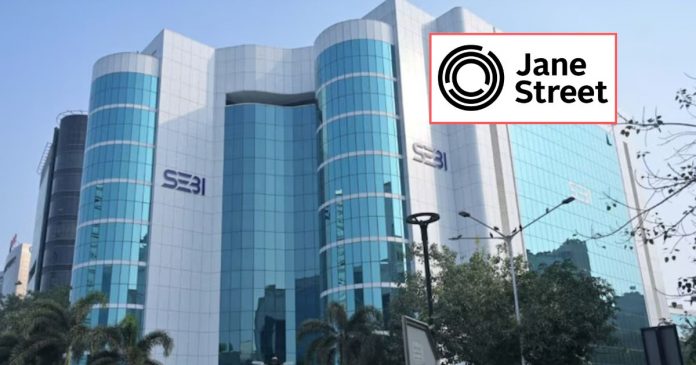One of the biggest financial shocks in recent times has hit Indian stock markets. A major US trading company, Jane Street, is facing serious action from SEBI for allegedly cheating Indian investors and manipulating the market to make huge profits worth ₹36,671 crore. The company has now been banned from operating in Indian securities markets.
Jane Street is not just any company. It is one of the biggest quantitative trading firms in the world, with more than 3,000 employees and operations across 45 countries. It made headlines in India last year after a court battle with another firm revealed how Jane Street had developed a highly profitable options trading strategy focused on Indian markets.
SEBI, the market regulator, began an in-depth investigation after spotting unusual trading patterns, especially during the expiry days of options contracts. What they found was disturbing.
According to SEBI’s report, Jane Street used two major tactics:
First, the “morning pump, afternoon dump” method. The company would buy large quantities of stocks and futures early in the day to push up the Nifty and Bank Nifty indices. Then, by late afternoon, it would start selling them off aggressively. This created a false image that the market was strong, which tricked many common investors into jumping in, only to suffer losses when the market dipped later.
Second, SEBI said Jane Street manipulated index levels on expiry days — the last trading days of the options contracts. By making large, targeted trades near market closing, the firm reportedly moved the index in a way that allowed them to profit from their options positions. This gave them an unfair advantage over other traders.
In total, SEBI’s findings showed Jane Street made:
- ₹44,358 crore profit from index options
- ₹7,208 crore loss in stock futures
- ₹191 crore loss in index futures
- ₹288 crore loss in cash market
Even after these losses, the company ended up with a net profit of ₹36,671 crore — and out of that, SEBI believes ₹4,843 crore was gained illegally. The firm has been ordered to return this amount.
SEBI’s action hasn’t stopped there. Four entities connected to Jane Street — JSI Investments, JSI2 Investments Pvt Ltd, Jane Street Singapore Pte Ltd, and Jane Street Asia Trading — have been barred from buying, selling, or trading in Indian markets until the full investigation is complete. Their bank accounts have also been restricted from withdrawals unless SEBI gives permission.
What’s even more troubling is that SEBI said Jane Street continued these trades even after being warned in February this year. They had given assurances to the National Stock Exchange (NSE) that they would not repeat such behaviour — but the trades continued.
SEBI strongly criticised this disregard, saying Jane Street acted in “clear defiance” and cannot be treated like a trustworthy market participant.
While Jane Street has denied the allegations, the case is already being called one of the biggest manipulations in Indian market history. It has raised concerns about how foreign trading firms operate and the risks they might pose to retail investors.
For now, SEBI’s tough action is being seen as a message — that no matter how big or global a company is, Indian markets will not tolerate manipulation. Retail investors and honest traders are hoping this marks the beginning of stricter checks and a safer trading environment in the future.
Also Read: IAF Disposes Two Live Bombs Found Near Arunachal Village





